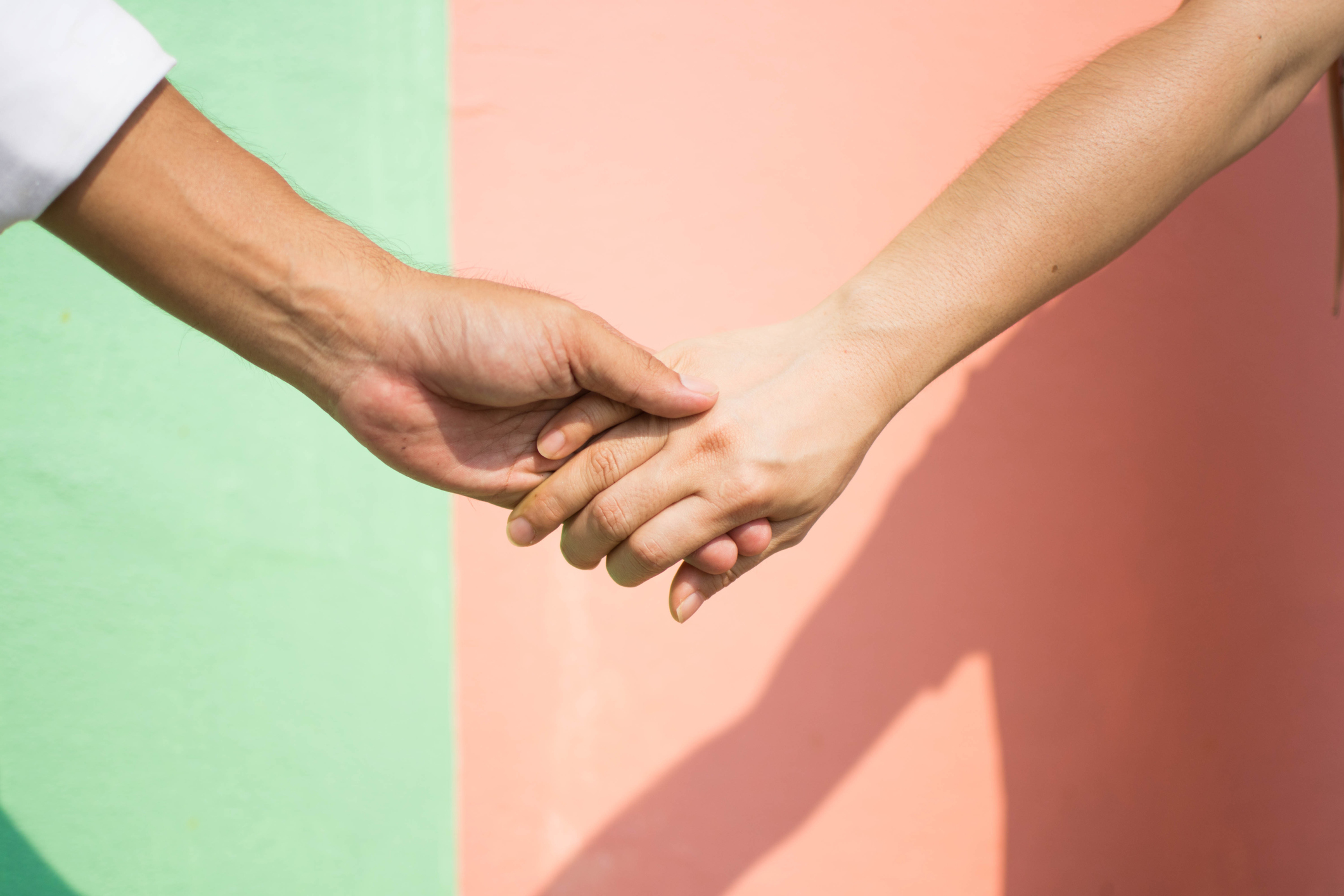
Celebrity news, beauty, fashion advice, and fascinating features, delivered straight to your inbox!
You are now subscribed
Your newsletter sign-up was successful
FYI, it's totally normal to find the transition weird after years facing a global pandemic.
If you're Googling how to be intimate, know this - loads of people might have forgotten how to get it on after nearly three years of tackling a global pandemic.
Stats from dating app Badoo found that 63% of you feel anxious at the thought of getting up close and personal. A further 43% admitted feeling out of practice, saying you just aren’t used to physical touch.
More recent stats from Relate, a UK relationship charity, and eharmony, a dating site, reveal that one in four single people feel 'out of practice' in the bedroom, while 13% state they aren't yet ready to be intimate again.
Sure, dinners out and date nights are all well and good, but if you're feeling stressed about actually getting close with others, it might be time to read some expert advice from the pros in the know.
Note before you read: feeling a little anxious about it all is totally understandable. There have been varying levels of limitations on physical contact - thanks, coronavirus restrictions - for nearly three years now. Overnight, we had to change the way we viewed physical interaction.
Humans are social creatures, and touch and physical contact is often a pillar of communication for many.
Keep reading for expert advice from psychosexual and relationship therapist Aoife Drury and sex and relationship expert for LELO Kate Moyle on how to get back to physical intimacy, after a year off.
Celebrity news, beauty, fashion advice, and fascinating features, delivered straight to your inbox!

How to be intimate: your expert-led guide
So, what is physical intimacy, in its most basic form?
Touching hands, stroking, friendly, non-sexual kissing and cuddling, on the one end of the spectrum, all the way up to full-blown penetrative sex, in more intimate, romantic forms, shares Moyle.
"In it's most basic form, physical intimacy is about physical and sensual closeness or touching, although how that is defined and what that may look like will vary between individuals and couples," she explains.
Physical intimacy doesn't always have to be sexual, and can also happen in non-romantic and couple relationships. But do note: here, we're largely referring to intimacy in the physical and romantic way, after a year of being told to socially distance from others.
Why is physical intimacy important?
As Drury explains, connection generally is vital for humans to thrive. "With an airborne virus, lockdowns, and restrictions, COVID has created touch deprivation like we've never seen before. The omission of sex for many single people may feel overwhelming and cause insurmountable anxiety," she shares.
"It can be scary enough getting back into dating and sex after a long break, let alone when there has been a global pandemic caused by close contact," she goes on.
For some people, physical intimacy just won't be important. Think about your mates who aren't into hugs. "But for many, physical intimacy and touch is important for what it symbolises - that is, closeness, comfort, and desire which can play a key role in relationships," Drury says.
Did you know? Physical touch also increases levels of the two neurotransmitters, serotonin and dopamine, which help to regulate mood and relieve anxiety and stress.

5 tips for getting back to physical intimacy after lockdowns and self isolating
With some self-compassion and care, alongside time and patience, sex and intimacy can become less daunting and more innate, share the experts.
1. Be kind to yourself
It might feel overwhelming to suddenly be able to hug and hold the people that you love. "It that could bring up quite a strong emotional reaction," shares Moyle.
Top tip: If it does, don't worry. |Touch can be very visceral - it's a part of what makes us human."
2. Take your time
If you're getting back into dating - read our round up of the best dating sites and sex apps, while you're here - don't be afraid to take your time. After over a year of being told we shouldn't touch each other, it might feel pretty scary to be physically close with someone new, let alone jump into the kinkier stuff, like pegging.
"Just take your time," recommends Moyle. "You can build up to it. Try talk to them in advance about how you are feeling - then they know where you're at and will be less likely to misread your reactions and responses."
3. Build a relationship with yourself
And by relationship, Moyle means sensual relationship.
"There are so many ways to can build on your solo or self relationship," the sex expert shares. "Everything from showering, to bathing, to moisturising, to touching all over your body - all of these things enhance your sense of touch and giving you sensual pleasure."
Masturbation can also play a part in this - read our expert guide to how to masturbate, if you're unsure - but it's also important to remember that touch doesn't have to be sexually motivated - sometimes just giving yourself a hug can help.
4. Don't worry if you're not ready
While others may be out there trying tantric sex and bondage for beginners, but know this: if you don't feel ready for touch, don't sweat it. It's easy to find other ways to feel more connected, reckons Moyle.
Top tip: "Lots of eye contact can also release oxytocin and build trust. Sitting facing someone which still regarding social distancing, rather than next to them, can help you to feel connected in that way," she shares.
5. Help yourself to feel safe
And finally, the pandemic has been really anxiety provoking for many.
"We haven't had many of our usual forms of self-soothing or regulating available to us, and so it's essential that you do what you need to do to feel safe," stresses Moyle.
"If you are feeling on edge or anxious, then work on ways of not increasing this. It's also important to recognise that not everyone is in the same space or feeling the same way, so respect people for where they are at, and what they are ready for," she concludes.

Ally is Marie Claire UK's Senior Health and Sustainability Editor, a well-regarded wellness expert, ten-time marathoner, and Boston Qualifying runner.
Utilising her impressive skillset and exceptional quality of writing, she pens investigative, review and first-person pieces that consistently demonstrate flair and originality.
As well as writing, Ally manages a team of freelancers, oversees all commissioning and strategy for her pillars, and spearheads the brand's annual Women in Sport covers, interviewing and shooting the likes of Mary Earps, Millie Bright, and Ilona Maher. Shortlisted for three BSMEs and winning one in 2022, Ally lives and breathes her verticals: her eye for a story and connections within the wellness sphere are unrivalled. Follow Ally on Instagram for more.
